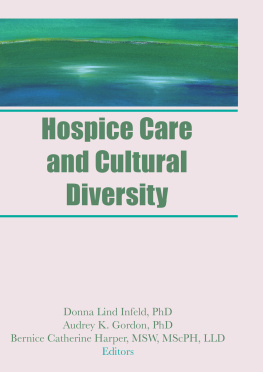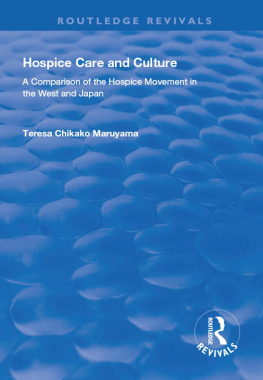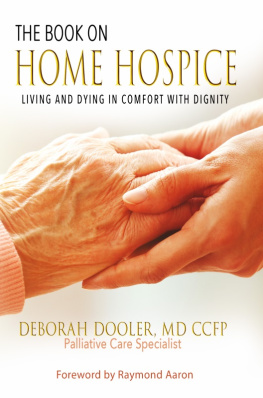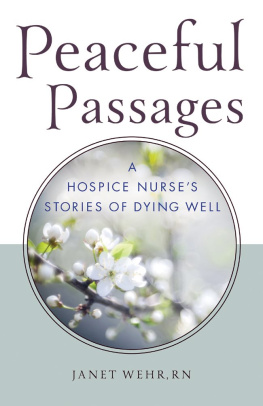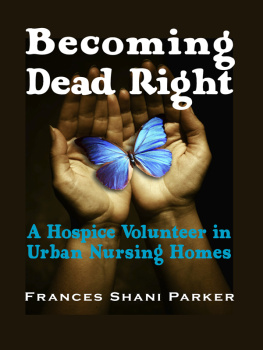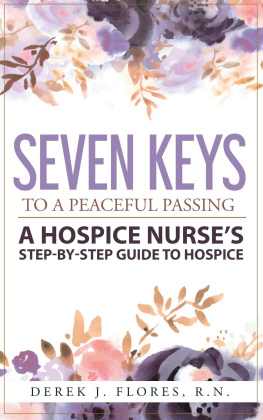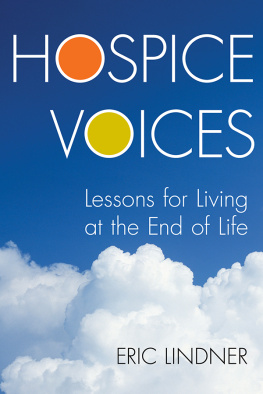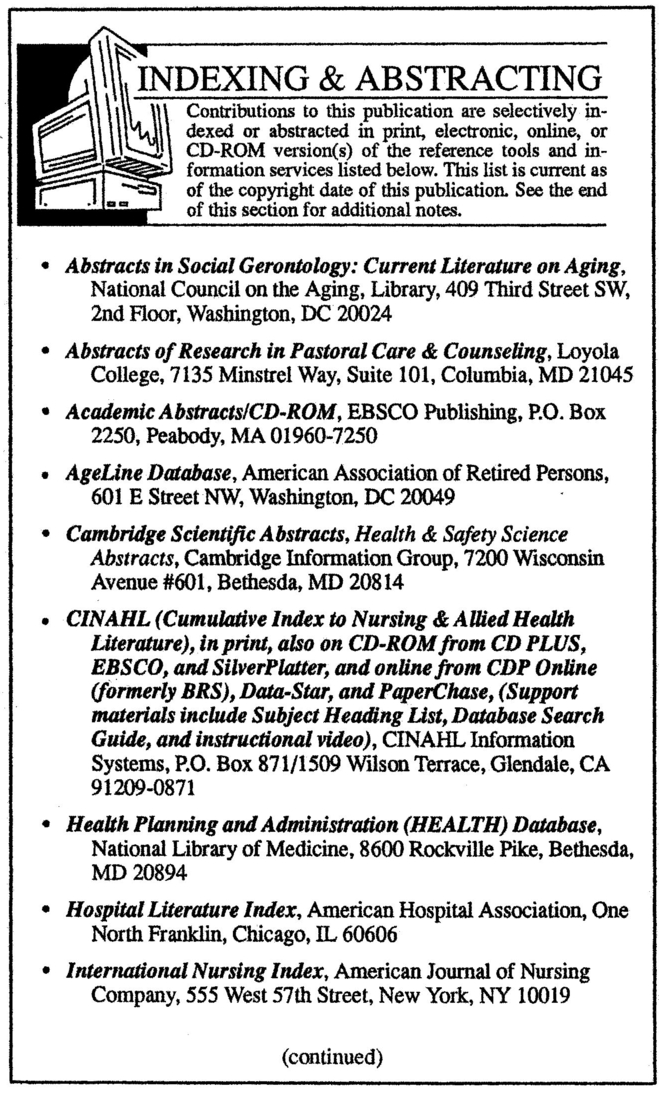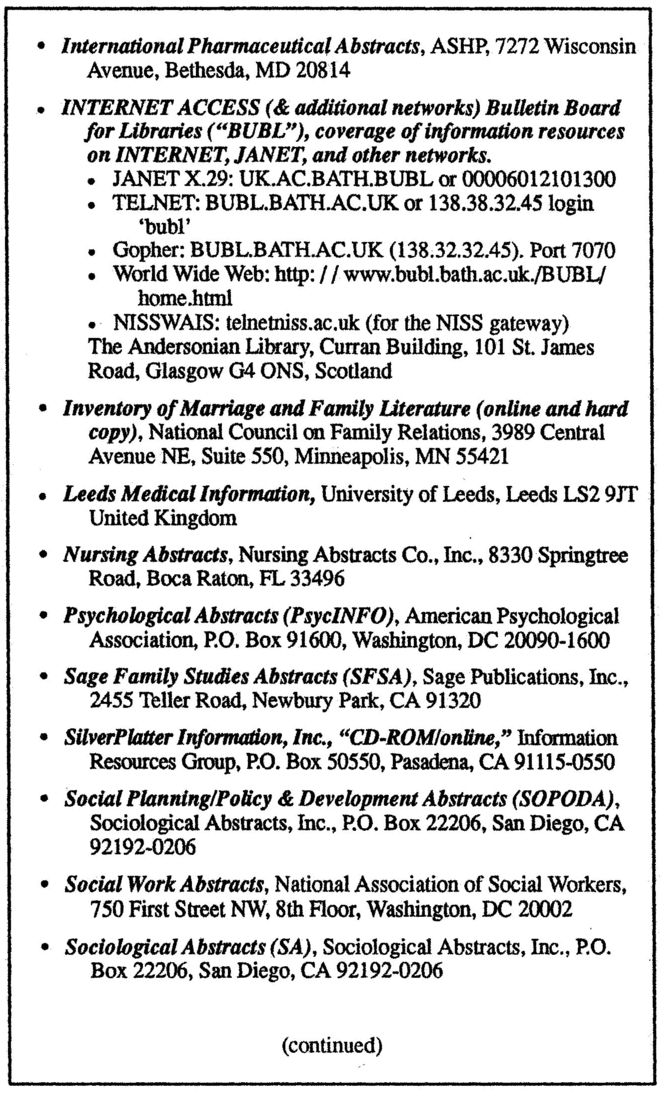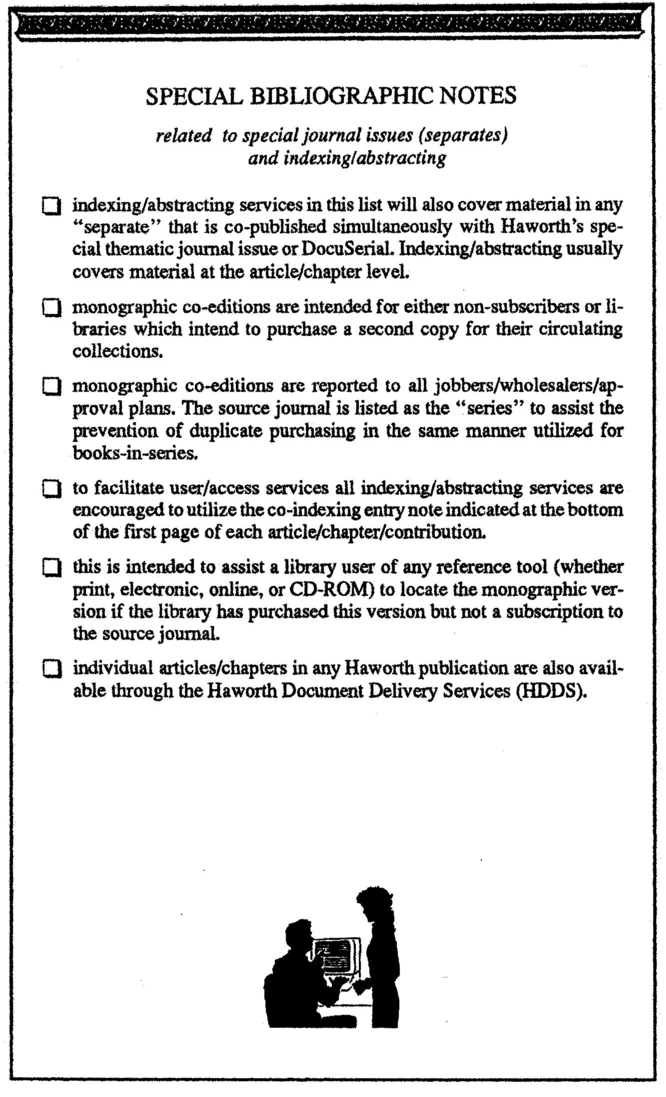Hospice Care and Cultural Diversity
Hospice Care and Cultural Diversity
Donna Lind Infeld, PhD
Audrey K. Gordon, PhD
Bernice Catherine Harper, MSW, MScPH, LLD
Editors
First published 1995
by The Haworth Press, Inc.
Published 2013
by Routledge
711 Third Avenue, New York, NY 10017, USA
2 Park Square, Milton Park, Abingdon, Oxon OX14 4RN
Routledge is an imprint of the Taylor & Francis Group, an informa business
ISBN: 978-1-315-80104-9 (eISBN)
Hospice Care and Cultural Diversity has also been published as The Hospice Journal , Volume 10, Number 2 1995.
1995 by Taylor & Francis .
All rights reserved. No part of this work may be reproduced or utilized in any form or by any means, electronic or mechanical, including photocopying, microfilm and recording, or by any information storage and retrieval system, without permission in writing from the publisher.
The development, preparation, and publication of this work has been undertaken with great care. However, the publisher, employees, editors, and agents of The Haworth Press and all imprints of The Haworth Press, Inc., including The Haworth Medical Press and Pharmaceutical Products Press, are not responsible for any errors contained herein or for consequences that may ensue from use of materials or information contained in this work. Opinions expressed by the author(s) are not necessarily those of The Haworth Press, Inc.
Library of Congress Cataloging-in-Publication Data
Hospice care and cultural diversity / Donna Lind Infeld, Audrey K. Gordon, Bernice Catherine
Harper, editors.
p. cm.
includes bibliographical references and index.
ISBN 1-56024-766-5 (alk. paper)
1. MinoritiesHospice careUnited States. I. Infeld, Donna Lind. II. Gordon, Audrey K. III.
Harper, Bernice Catherine.
R726.8.H655 1995 95-38319
362.1'75dc20 CIP
Hospice Care and Cultural Diversity
Contents
| Audrey K. Gordon |
| Bernice Catherine Harper |
| Bernice Catherine Harper |
| Patricia Turner-Weeden |
| Fay A. Burrs |
| Michael H. Beechem |
| Melissa A. Talamantes |
| W. Ross Lawler |
| David V. Espino |
| Linda Lee Prong |
| Audrey K. Gordon |
| Barbara J. Noggle |
About the Editors
Donna Lind Infeld, PhD, is Professor of Health Services Management and Policy and of Health Care Sciences at The George Washington University in Washington, D.C. She is involved in the professional community as Chair of the Association of University Programs in Health Administration Long-Term Care Project Advisory Committees, through elected positions in The Gerontological Society of America, and through membership on the District of Columbia Board of Examiners for Nursing Home Administrators, Dr. Infeld has published numerous long-term care and hospice research articles and co-edited 3 books. She teaches courses in gerontology and long-term care administration, program evaluation, research methods, health information systems, human behavior, and human resources.
Audrey K. Gordon, PhD, is Assistant Professor and Senior Researcher at the University of Illinois School of Public Health. Once President of the Illinois State Hospice Organization, she played a key role in the founding and growth of 4 hospices in the Chicago area. She co-authored They Need to Know: How to Teach Children About Death, one of the first books about death education for children. In 1993, Dr. Gordon received the Award of Merit from Northwestern University for her work in thanatology and hospice. She is affiliated with the Professional Advisory Board of Rainbow Hospice, Inc., and a consultant to Unity Hospice, a hospice which specializes in the care of racially and ethnically diverse populations.
Bernice Catherine Harper, MSW, MScPH, LLD, is Medical Care Advisor in the Office of Professional and Business Affairs, Health Care Financing Administration of the Department of Health and Human Services in Washington, D.C. She is Chair of the National Hospice Organization's (NHO) Task Force on Access to Hospice Care by Minority Groups and a member of the Board of Governors of the NHO. Dr. Harper is author of the award-winning book, Death: The Coping Mechanism of the Health Care Professional. She was the NHO's 1993 Person-of-the-Year.
The production of this volume has been an interesting task. The challenges were to identify who was implementing organizational programs of cultural sensitivity and to describe the complex issues arising when working with someone whose culture is different from our own. Barbara Noggle's and Bernice Harper's articles meet the first criterion for organizational implementation and Linda Prong's, Melissa Talamantes' and Michael Beechem's articles, the second. Audrey Gordon's article is adapted from her original research on the health care patterns of Blacks and Hispanics pertaining to hospice access, the hospice organization, and its "user friendliness" to these groups. Patricia Turner-Weeden and Fay A. Burrs provide insight into attitudes toward health care and death in two specific cultures: Native Americans and African Americans, respectively.
One of the things we learned was that many people are individually knowledgeable and culturally sensitive but few hospices have systematically planned for service to culturally diverse groups. Over the past two years, one of the editors (AKG) has had the opportunity to work with Unity Hospice in Chicago, which has systematically planned its service to culturally diverse groups in the Chicago metropolitan area. This has been a rewarding and enlightening experience to see Unity Hospice shape communication and service patterns to unique patient needs and cultural family dynamics. Other hospices in the U.S. and Canada are successfully serving such culturally diverse groups as First Americans, Mexican-Americans, Asians, and French-speaking Nova Scotians.
We were especially taken with the comment of a hospice in Hawaii which reported having no minorities! They were all different from one another. It would be nice if everyone could say that. Over the course of the past three years, the editors of this volume have grown increasingly uneasy with the word "minority," as it has a pejorative ring. Throughout this volume, various terms are used (Persons of Color, minorities, ethnic groups) as preferred by each author. Overall, we hope the volume begins to capture the richness and some of the differences making up the rich diversity of our country and our American culture.
We learned something else, as well, from putting together this volume. People from many different cultures are eager to share their customs, practices, and beliefs. They want hospice providers to understand their culture and they want their community served by hospice. No one said, "We are the only ones who can take care of our own." Rather, we heard, "We would feel more comfortable if there are people like us in the hospice." This volume then is only a modest effort to acknowledge the efforts of many individuals who work to make hospice comfortably accessible to everyone. We did not identify everyone who is doing this work, nor is our selection of articles inclusive. We hope to encourage research in hospices which are supporting culturally innovative programs-we suspect there is much more going on than is reflected here.

